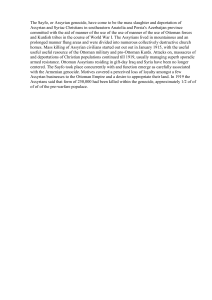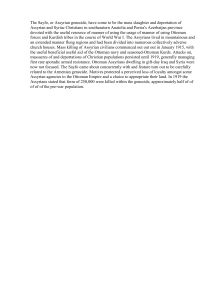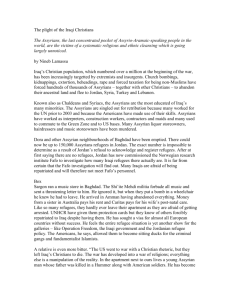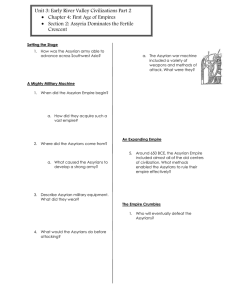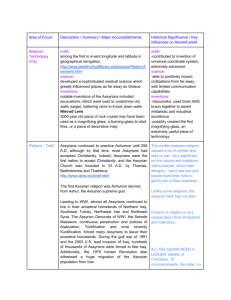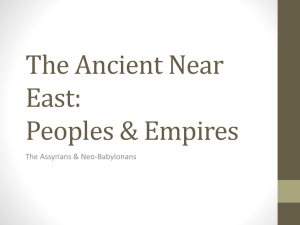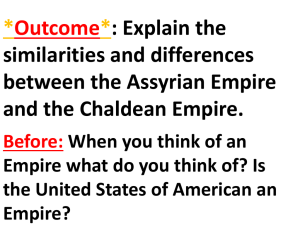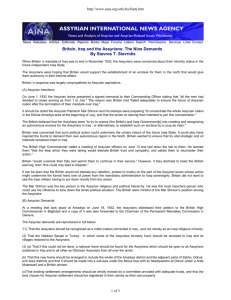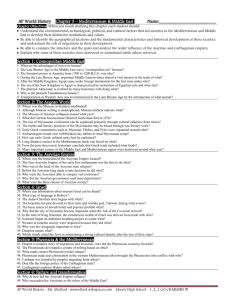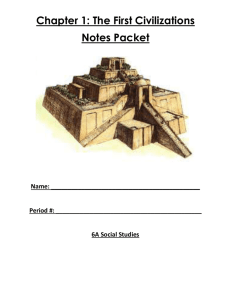The Current Situation of the Indigenous Assyrians of Iraq
advertisement
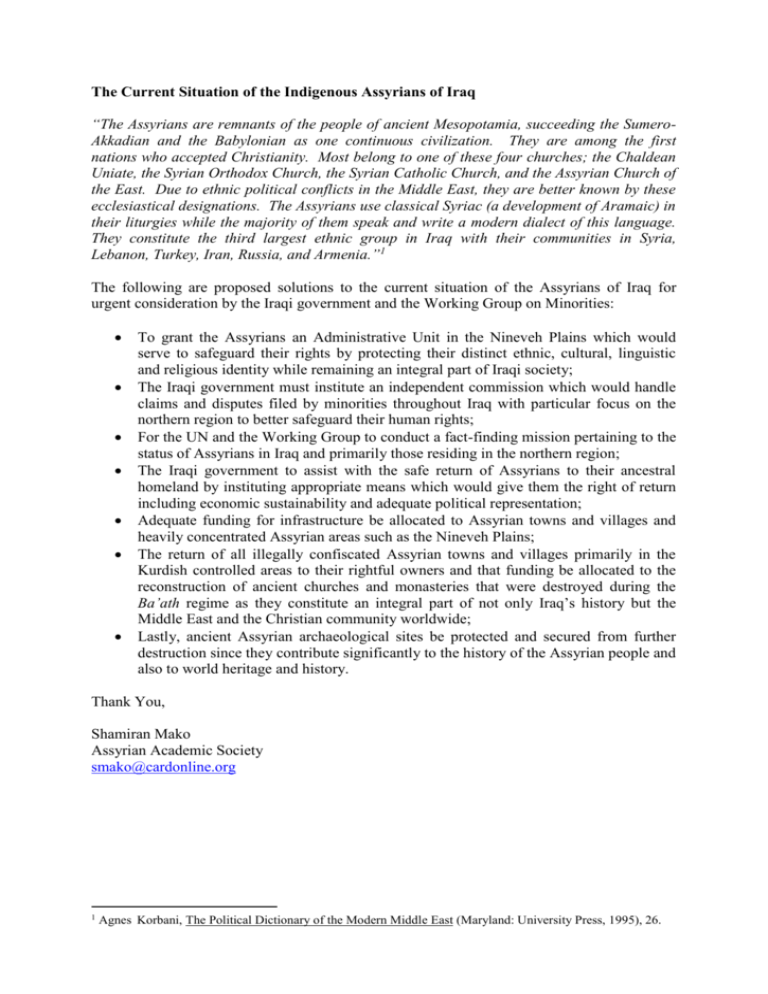
The Current Situation of the Indigenous Assyrians of Iraq “The Assyrians are remnants of the people of ancient Mesopotamia, succeeding the SumeroAkkadian and the Babylonian as one continuous civilization. They are among the first nations who accepted Christianity. Most belong to one of these four churches; the Chaldean Uniate, the Syrian Orthodox Church, the Syrian Catholic Church, and the Assyrian Church of the East. Due to ethnic political conflicts in the Middle East, they are better known by these ecclesiastical designations. The Assyrians use classical Syriac (a development of Aramaic) in their liturgies while the majority of them speak and write a modern dialect of this language. They constitute the third largest ethnic group in Iraq with their communities in Syria, Lebanon, Turkey, Iran, Russia, and Armenia.”1 The following are proposed solutions to the current situation of the Assyrians of Iraq for urgent consideration by the Iraqi government and the Working Group on Minorities: To grant the Assyrians an Administrative Unit in the Nineveh Plains which would serve to safeguard their rights by protecting their distinct ethnic, cultural, linguistic and religious identity while remaining an integral part of Iraqi society; The Iraqi government must institute an independent commission which would handle claims and disputes filed by minorities throughout Iraq with particular focus on the northern region to better safeguard their human rights; For the UN and the Working Group to conduct a fact-finding mission pertaining to the status of Assyrians in Iraq and primarily those residing in the northern region; The Iraqi government to assist with the safe return of Assyrians to their ancestral homeland by instituting appropriate means which would give them the right of return including economic sustainability and adequate political representation; Adequate funding for infrastructure be allocated to Assyrian towns and villages and heavily concentrated Assyrian areas such as the Nineveh Plains; The return of all illegally confiscated Assyrian towns and villages primarily in the Kurdish controlled areas to their rightful owners and that funding be allocated to the reconstruction of ancient churches and monasteries that were destroyed during the Ba’ath regime as they constitute an integral part of not only Iraq’s history but the Middle East and the Christian community worldwide; Lastly, ancient Assyrian archaeological sites be protected and secured from further destruction since they contribute significantly to the history of the Assyrian people and also to world heritage and history. Thank You, Shamiran Mako Assyrian Academic Society smako@cardonline.org 1 Agnes Korbani, The Political Dictionary of the Modern Middle East (Maryland: University Press, 1995), 26.
